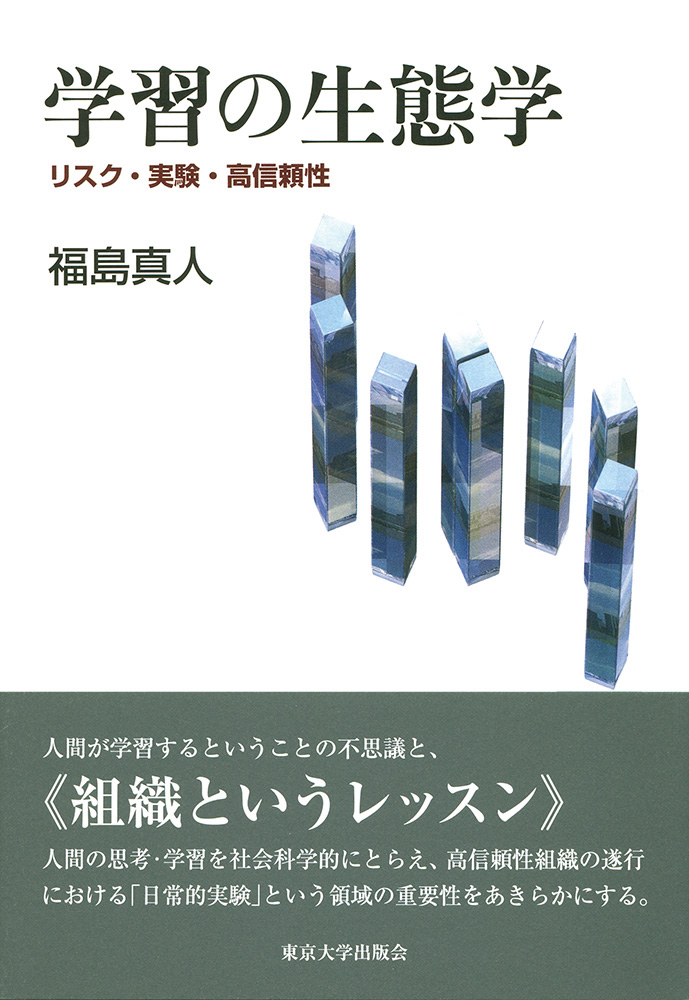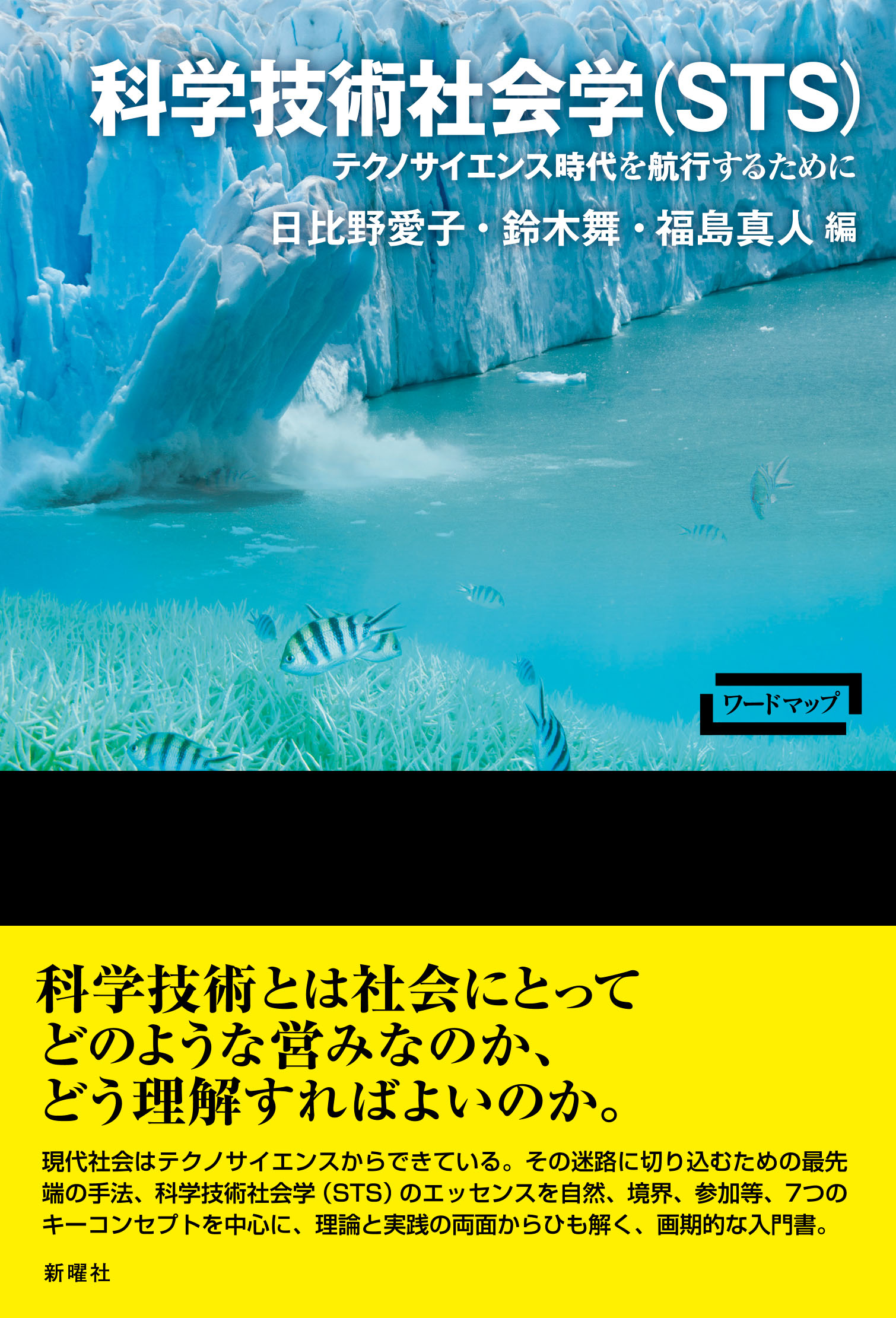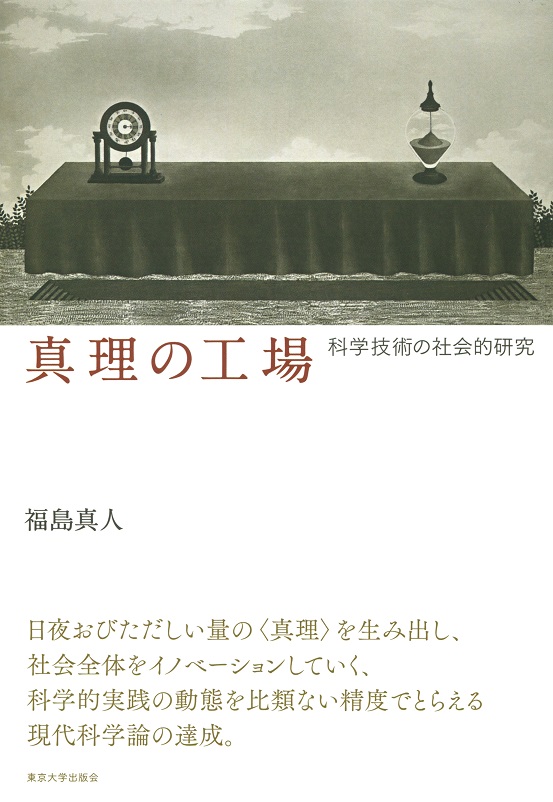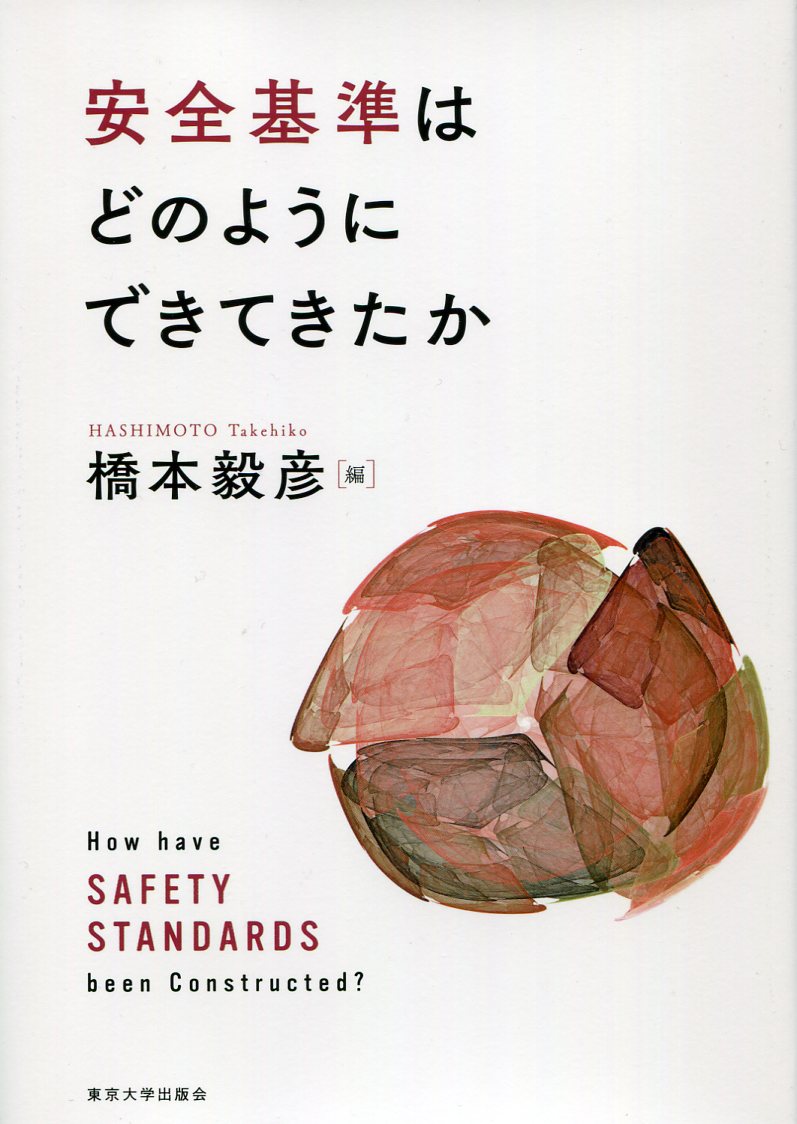
Title
Chikuma Gakugei Bunko Gakushu no Seitaigaku (Ecology of Learning: Risk, Experiment, High Reliability)
Size
496 pages, paperback pocket edition
Language
Japanese
Released
March 10, 2022
ISBN
978-4-480-51098-3
Published by
Chikuma Gakugei Bunko
Book Info
See Book Availability at Library
Japanese Page
This book deals with various topics related to learning and understanding in situ beyond the scope of the “situated cognition and learning” approach. The aim is to contribute to a more socio-anthropologically extended framework that encompasses such theoretical approaches as risk research, high reliability organization studies, and science and technology studies (STS). Some chapters deal with the ethnographic analysis of learning and cognition related to diverse workplaces such as high risk organizations (Chap. 5), psychiatric wards (Chap. 6), and emergency medical centers (Chap. 8), while other chapters dig deeper into the more theoretical issues, such as the limit of interviewing in ethnographic research (Chap. 1), the problem with the concept of “communities of practice” in terms of failing at analyzing radical change (Chap. 2), and in offering the proper teaching model(Chap. 3). I propose a seminal “Experimental Zone of Learning” framework (Chap. 4), which has now been fully developed as a paper in the journal of Mind, Culture and Activity. The diverse efforts described in this book are to be further elaborated upon in my next book on contemporary practices of technoscience, Factory of Truth, which is to be published in 2017 from University of Tokyo Press.
This book was published by the University of Tokyo Press in 2016; now, the pocketbook edition with a new cover, is issued by Chikuma Shobo in 2022 along with a postscript detailing the diverse theoretical background of this book. The background ranges from cognitive science, situated learning theory, and high reliability organization studies to science and technology studies (STS), as well as empirical studies that include mental institutions, nuclear reactors, and emergency medical centers.
This version includes a new essay by Prof. Shinichiro Kumagaya, who is well known for his Tojisha-gaku, namely, the self-studies of the handicapped. He has been an enthusiastic reader of the book, detailing his own experience in his apprentice years as a handicapped pediatrician which is an exemplary case of my proposed theory, “Experimental Zone of Learning”.
(Written by FUKUSHIMA Masato, Professor, Interfaculty Initiative in Information Studies / 2023)
Table of Contents
Part I
From Practice to Everyday Experiment: Reconsidering Theories of Learning
Chapter 1: Knowledge Engineering in the Wild: An Essay on the Ethnography of Tacit Knowing
1) Limits of interviews or untold knowledge
2)Taxonomy of Knowledge
3)Formalization of tacit knowledge and its critics
4)Ecology and simulation
5)Ecological constraints on the social theory of expertise
Conclusion: Merits and limitations of ethnographic research
Chapter 2: Situation, Action, and Reflection Beyond the Myths of the Community
Introduction: Genealogy of the Concept of Situation
1)Self-limitation of Rationality
2)Situation and action: Tradition of pragmatism
3)Situation and reflections
4)Expertise and environment
5)Changing the environment and failure of expertise
6)Expertise as a collective activity
Conclusion: From practice to daily experiments
Chapter 3 Empty Communities: Merits and Drawbacks of the Apprentice Model in Educational Research
Introduction: Rethinking education and learning
1)School as an outcome of systemic differentiation
2) A brief therapy approach to school education
Conclusion
Chapter 4: Experimental Zone of Learning: Trial, Cost, Exemption of Responsibility
Introduction: Twisted relations between learning and organization
1)Rethinking the theories of learning
2)Reimagining on-the-job learning
3)From apprenticeship to laboratory
4)Conditions for the experimental learning zone: various forms of constraints
Conclusion: Future Research Programs
Part II
Lessons on Organization: Risk, Knowledge, Technology
Chapter 5: Organization, Risk, and Technology: High-Reliability Organizations
Introduction
1)Safety, hazards, and organizational accidents
2)Sociology of accidents and high-reliability organizational (HRO) studies
3) Outcomes from HRO studies
4)Organizational specificity of nuclear power reactors
5) Generalizing high reliability and problems
6)Sociology of Risk and the Organizational Approach: Common Grounds and Differences
Conclusion
Appendix: HRO studies and military models of organizations
Chapter 6: Ethnographies of mental institutions and the origin of the sociology of science
1) The impact of Goffman’s Asylum
2) The Ethnographies of mental institutions: Their outline.
3)Psychoanalysis as a Problem
4)Psychoanalysis in American History
5)Pathology of psychoanalysis
6)From psychoanalysis to the sociology of science
7)The idiosyncrasy of Asylum
Conclusion: Lessons from the Ethnographies of Mental Institutions
Chapter 7: Risk Management in the Wild: Observing the Organizational Dynamism of Mental Wards
Introduction: The Two Faces of Risk
1) Collective risk perception
2) Experts and everyday bases of judgements in psychiatric wards
3) Legitimation problems in medical interventions
4) Meaning of space in the protective room
Discussion and conclusion: Fuzzy boundaries of risk
Chapter 8: Organization and learning in emergency medical centers
Introduction
1) Background of research subjects
2)The characteristics of emergency medicine in Japan in contrast to those in the West
3) The three-layered structure and fragility of the organization
4)Learning, safety, and risks
5)Institutional apparatuses for safety
6) Preconditions for defense mechanisms
7) Limits of defense mechanisms and learning from failure
8)Hiatus between education and safety
9) Inter-organizational style
10) Task and structure of coupling
11)Emergency Medical Center as an Organization
Conclusion
Postscript
Explanatory notes on the pocketbook version
Postscript for the pocketbook version
Organizational conditions for peripherals to participate by Shin’ichiro Kumagaya



 Find a book
Find a book






